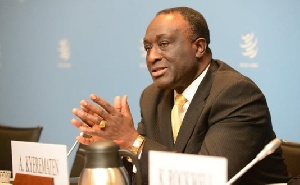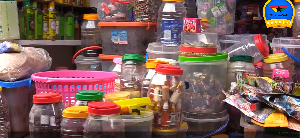The Citizen Watch, (CW) is urging the Ministry of Trade and Industries to initiate policy developments, such as market access, tax reforms and exemptions and linkages on business improvement on the economy in a way to support the private sector to grow.
CW comments come in wake when the Ministry of Trade and Industry said it wants the Ghana Exim Bank to be under the Ministry of Trade and not the Ministry of Finance.
But the CW disagrees, cautioning that there is no need to amend the Exim law, adding that with the inception of Exim Bank every credit is seen as a commercial activity that is supposed to come out with the needed result which is a measure of performance of the bank. So it cannot be under the Ministry of Trade, according to a statement issued by CW in Accra.
“What the Ministry of Trade should do was to help with the policy directions and also help potential investors to seek credit support from Exim Bank”.
“We are happy that the NDC government created a solid policy structure for Exim Bank, benchmarking it with international standard and also moved the Exim Bank from the Ministry of Trade to Ministry of Finance”, it said. The Exim bank is one of the conduits used by the government to do it lending to the private sector and also to streamline its activities.
“Exim Bank makes the government more accountable to the people. So they are mandated with their Key Performance Index, (KPIs), to make sure the results are achieved, while with the Ministry of Trade, they just give out the credit support without monitoring to see if the company is performing or not. They don’t even take inventory of investments in the country”, the statement said.
By these, CW wants the Trade Ministry to focus on market access, policies for the Ghanaian manufacturer such as tax reforms, water and reliable power among others.
“Ghanaian businesses are affected by tax regime, what is the Trade Ministry doing to protect and improve on them. The Ministry of Trade cannot be a financial institution because they have not proven that they can protect the public purse for the past 30 years’.
Exim Bank mandate was to support both the private sector and the government initiative that have clear KPIs. This is quite different from the previous mandate where tax payers’ monies were given without accountability, example is the Komenda Sugar project.
“There is no base for our export market. Cocobod is making hand pollination. It means their focus is on base development. Without the base you cannot get your export going forward and this is what the Exim bank is also doing”.
According to the CW, the global commodity price fluctuation has affected Ghana’s key commodities like the cocoa, pineapple among others, this means that value addition is critical to sustain the industry- so without values addition you cannot compete with import substitution.
CW investigations clearly show that the commodities that Exim bank was financing depicts that the government is on the path of promoting exports.
“As we speak, the government is yet to come out with the clear mandate of rewards for 1D1F companies, we want to entreat the Trade Ministry to focus on making that to happen within the shortest possible of time. The rewards include interest rates, taxation, water and electricity”.
Business News of Thursday, 18 October 2018
Source: Elorm Desewu













